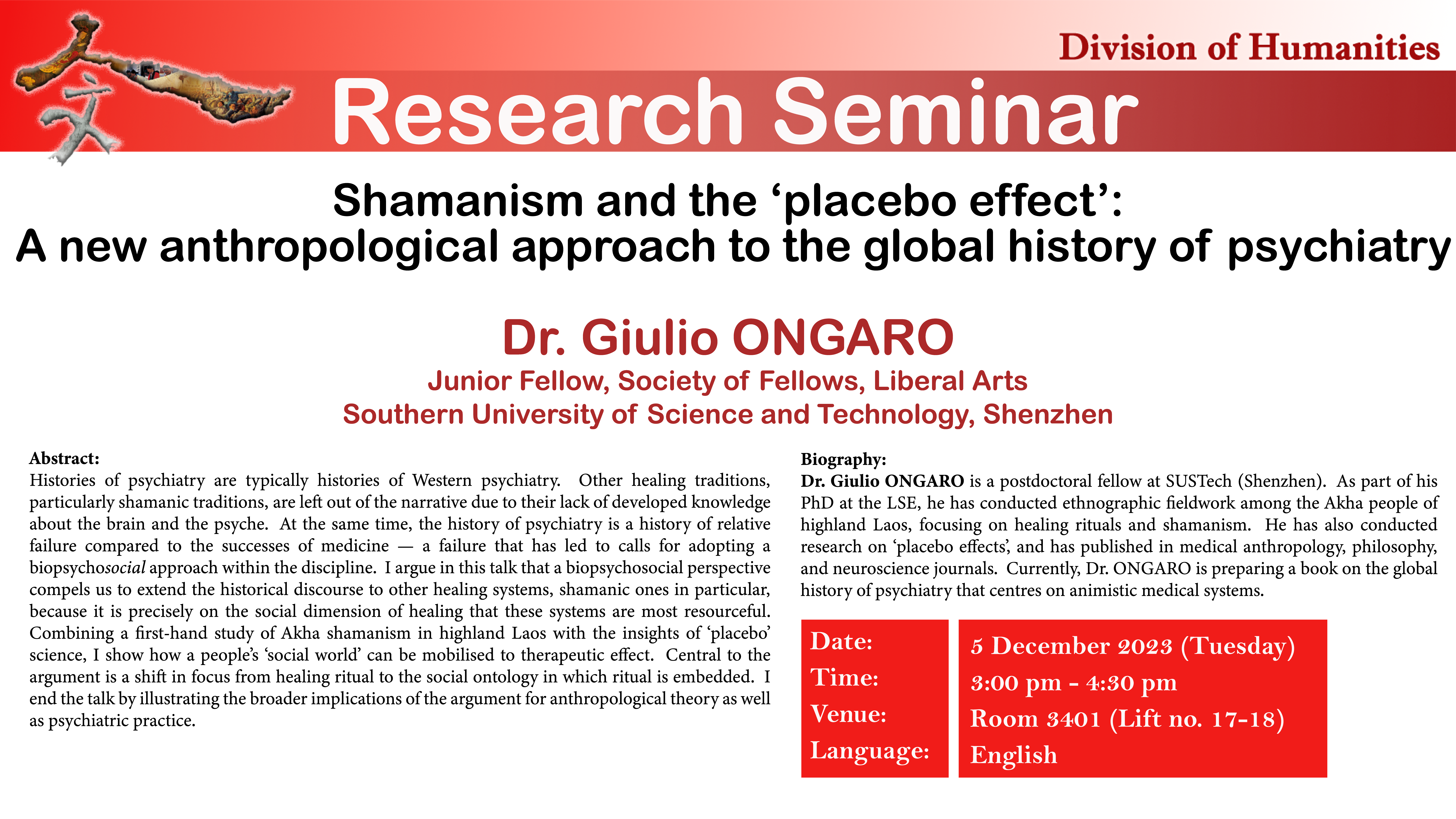Abstract:
Histories of psychiatry are typically histories of Western psychiatry. Other healing traditions, particularly shamanic traditions, are left out of the narrative due to their lack of developed knowledge about the brain and the psyche. At the same time, the history of psychiatry is a history of relative failure compared to the successes of medicine — a failure that has led to calls for adopting a biopsychosocial approach within the discipline. I argue in this talk that a biopsychosocial perspective compels us to extend the historical discourse to other healing systems, shamanic ones in particular, because it is precisely on the social dimension of healing that these systems are most resourceful. Combining a first-hand study of Akha shamanism in highland Laos with the insights of ‘placebo’ science, I show how a people’s ‘social world’ can be mobilised to therapeutic effect. Central to the argument is a shift in focus from healing ritual to the social ontology in which ritual is embedded. I end the talk by illustrating the broader implications of the argument for anthropological theory as well as psychiatric practice.
Biography:
Dr. Giulio ONGARO is a postdoctoral fellow at SUSTech (Shenzhen). As part of his PhD at the LSE, he has conducted ethnographic fieldwork among the Akha people of highland Laos, focusing on healing rituals and shamanism. He has also conducted research on ‘placebo effects’, and has published in medical anthropology, philosophy, and neuroscience journals. Currently, Dr. ONGARO is preparing a book on the global history of psychiatry that centres on animistic medical systems.
